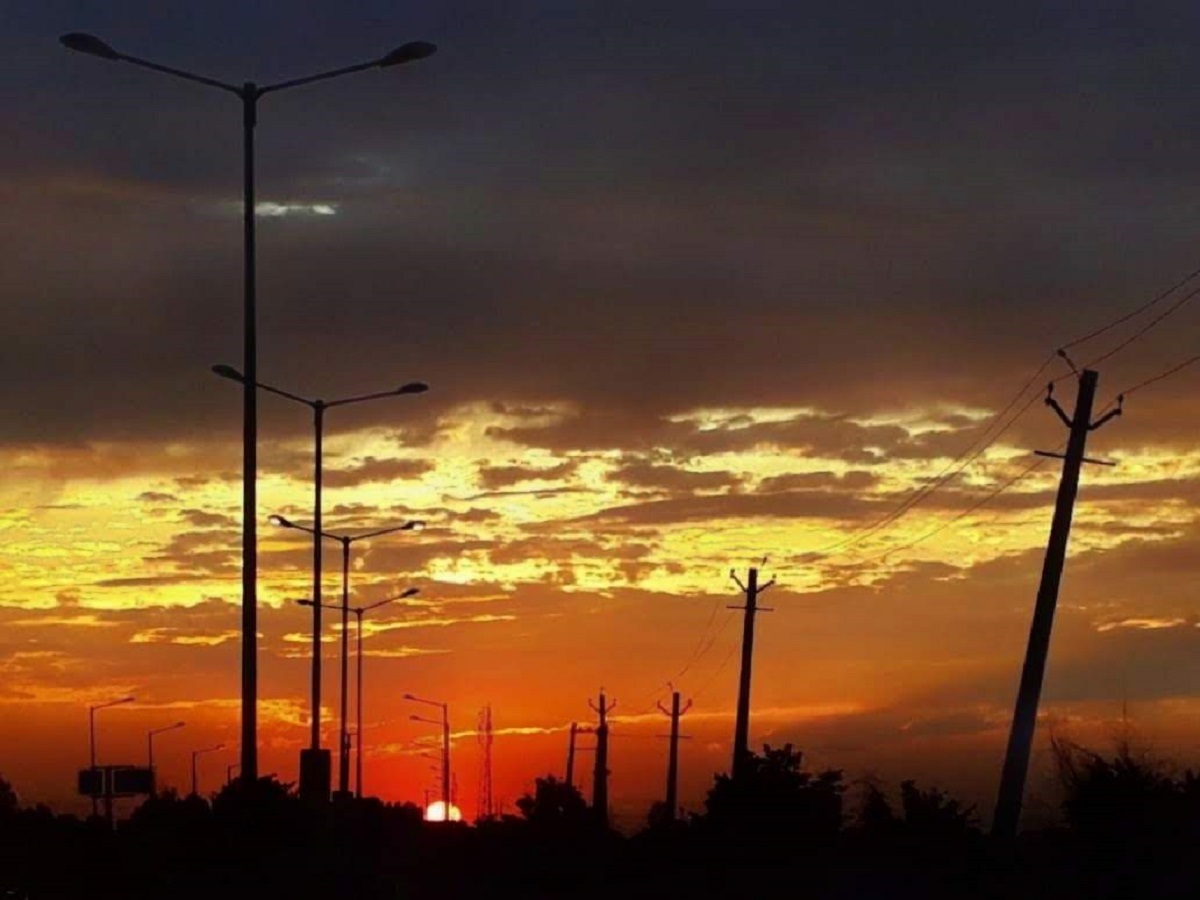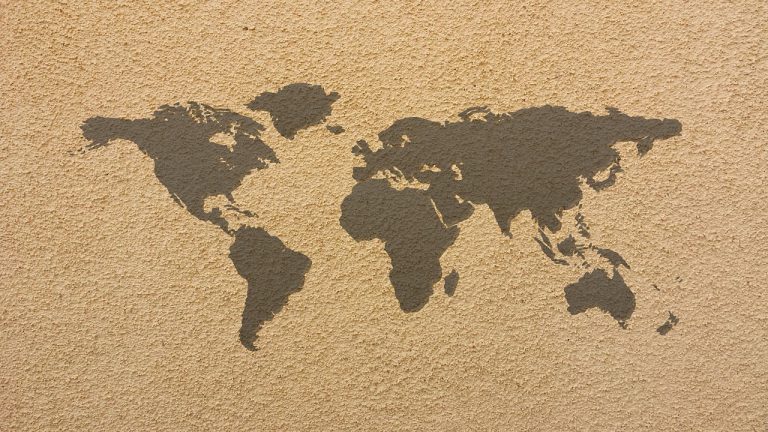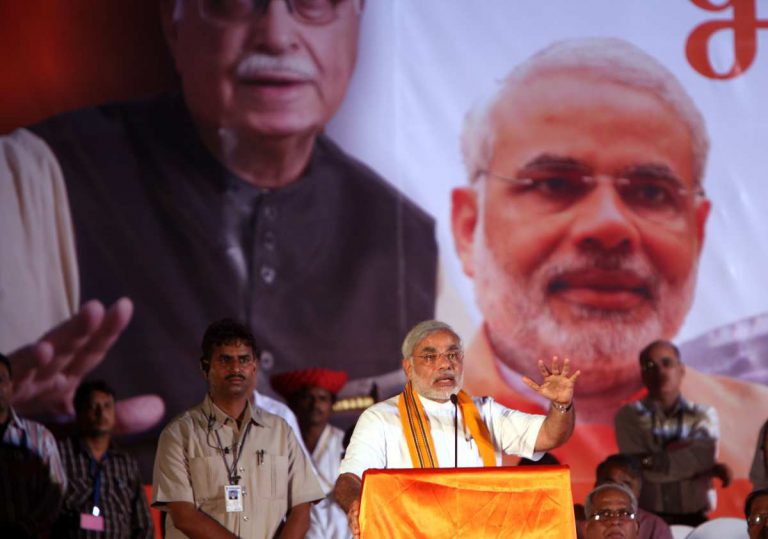Climate change – how should we deal with the emergency?

As 2020 begins, the future of humankind is more vulnerable than ever. The global crisis of climate change is looming over humanity. Rising temperatures, wildfires, droughts, hurricanes are becoming part of our lives. Devastating bushfires, Amazon fires, melting icebergs in Antarctica show that we are headed to our doom. But our leaders don’t seem scared about this impending disaster. Lack of sense of urgency, ambition, and consensus at The World Economic Forum at Davos is testimony to this fact. But the conference did raise an important question: who or what is responsible for climate change? The answer was population or population growth or population explosion, whatever you may want to call it.
Is the population responsible?
The answer is no. We tend to believe that a sudden exponential increase in population is the cause of everything wrong on this planet, from unemployment to climate change. However, the reality is that the community is not increasing exponentially. It is slowing and going to stabilize at 11 billion by 2100.
This overpopulation argument shifts the blame from real drivers of climate that are over-consumption, wealth inequality, endless urge for economic growth, and profit accumulation to the people who have contributed least to environmental degradation, such as growing populations in Africa and Asia.
If the population is to be responsible, then the developing regions of Africa, Asia, and Latin America would have been the most significant contributor to greenhouse gas emissions. But in reality, regions like North America and China with significantly more wealth as compared to their low-income counterparts account for nearly half of the global CO2 emissions.
Apart from fossil fuel emissions by companies, individual consumption-based fossil fuel emissions account for 64 percent of global emissions. In a study by Oxfam, it was found that the wealthiest 10 percent of people in the world are responsible for 50 percent of the planet’s individual consumption-based fossil fuel emissions. On the other hand, the most deficient 50 percent, which is about 3.5 billion, accounts for only 10 percent. Sadly, these 3.5 billion people are living in the countries most vulnerable to climate change.
The gap is even wider if you compare the carbon emissions of the richest one percent of people to the poor. According to the report, the wealthiest one percent emit 30 times more carbon emission than the poor. Wealth inequality and climate change are linked inseparably. “Climate Change is a crisis driven by haves which hits the have nots the hardest.”
Correcting climate change requires system change
We cannot treat climate change as a mere scientific problem. It has vast social and economic consequences that cannot be ignored. Our current economic and political system is inefficient to fight climate change because it seeks solutions from the people who were responsible for the problem in the first place. The puppet governments of prominent industrialists can do nothing but wag their tails at the false solutions proposed by capitalists. This system is busy blaming ‘Anthropocene’ while the real culprit is ‘Capitalocene.’
Carbon emissions from fossil fuels are the primary reason for the degrading environment. The world’s largest 20 fossil fuel companies are responsible for 35 percent of all energy-related to carbon dioxide and methane emissions. Out of these 20 companies, 12 are publicly owned. Experts say that industries and politicians knew the environmental impact of fossil fuels since 1965. Still, as usual, they chose profit over the earth and continued extracting resources at alarming levels.
Some leading industries like Exxon, Chevron had also started to raise doubts regarding climate science and denying climate change. In 2016 Exxon, Chevron and BP donated more than half a million dollars for Trump’s inaugural campaign – the most famous climate denial. Apart from him, some other famous billionaires who do not believe in climate change are Koch Brothers- The energy tycoons, Senator Ted Cruz (US Republican presidential candidate,2015), Senator Jim Inhofe, Senator Mitch McConnell and many more. All these politicians have received donations from the above-said industries for sponsoring their campaigns. Money indeed buys everything, even your brains.
But as awareness is increasing, people around the world are holding these industries accountable and asking them to stop their operations. Many industries claim that they are helping in saving the planet, but their actions do not match their intentions. Current plans of all significant polluting companies require more and more extraction of fossil fuels. On top of the many countries also provide considerable subsidies to these industries so, not only are they destroying the planet, they are doing it on a discount. They are not stopping, nor are they forced to stop because we have reached the era of deregulation.
While industries continue to wreak havoc on earth, world leaders are deceiving people with imprudent policies like The Paris Agreement. James Hansen, the father of climate change awareness, calls this accord ‘a fraud, a fake.’ The goal of an agreement to keep the global temperatures below 2 degrees is undoubtedly useful, but the execution is disastrous. According to this agreement, countries are told to cut their carbon emissions according to their will without any strict limit set by the UN. But in reality, when these goals are added, they lead to a 3 or 4 degrees rise in global temperatures, which is far from the required temperature.
Another “most effective” solution presented at the World Economic Forum last month was to plant a trillion trees to save the planet. Well, we cannot sincerely believe in the fairy tale that after planting trees, humankind lived happily ever after. Climate change is not that simple. Trees do indeed absorb carbon emissions, but it will not be enough to stop rising temperatures. It will buy us some more time, but the result will be the same. We must cut carbon emissions from fossil fuels to survive. Even a 16-year-old knows that.
Individual responsibility
What responsibility do individuals have in tackling climate change? Admittedly, taking 5-minute showers, eating less meat, flying less, etc. help in fighting climate change, but this is not enough to stop it. Personal sacrifices will not solve climate change.
Individual responsibility lies in taking collective action to turn the tide. People must keep governments and institutions in check and demand a safe future for themselves and for countless generations to come. We can no longer rely on polluters for solutions. We must take matters in our hands and make our governments tackle climate change with utmost urgency and sincerity.
Featured Image Credits: Sri Harsha Dantuluri









Readers' Reviews (1 reply)